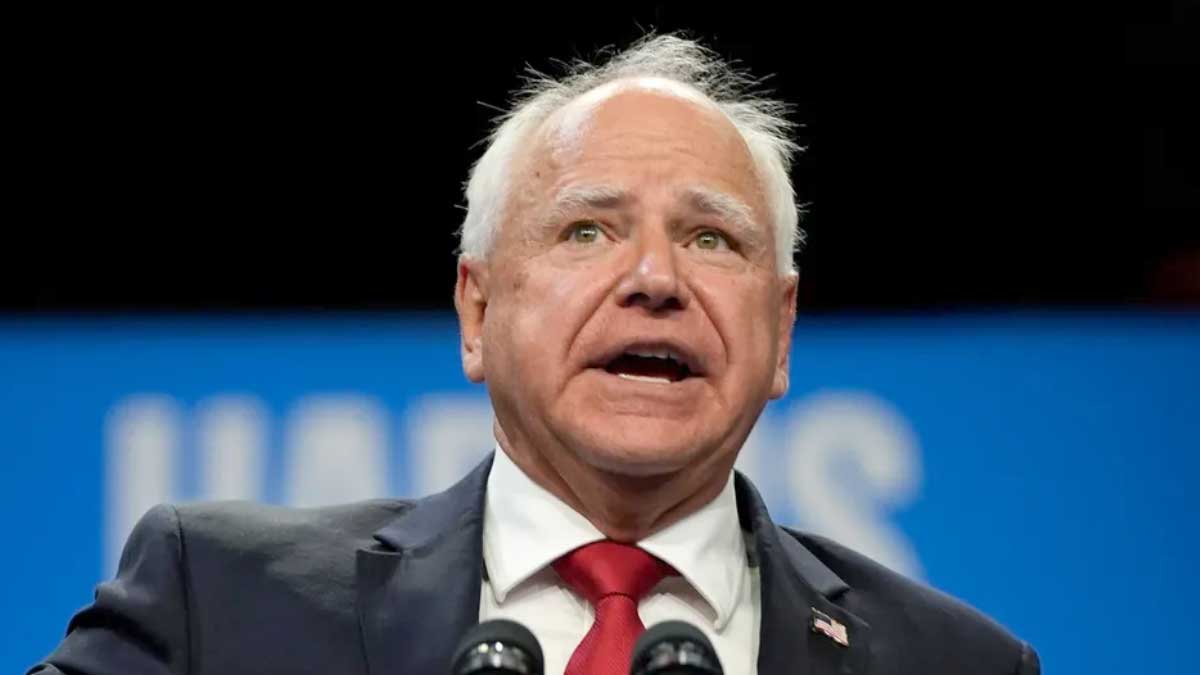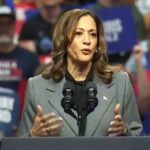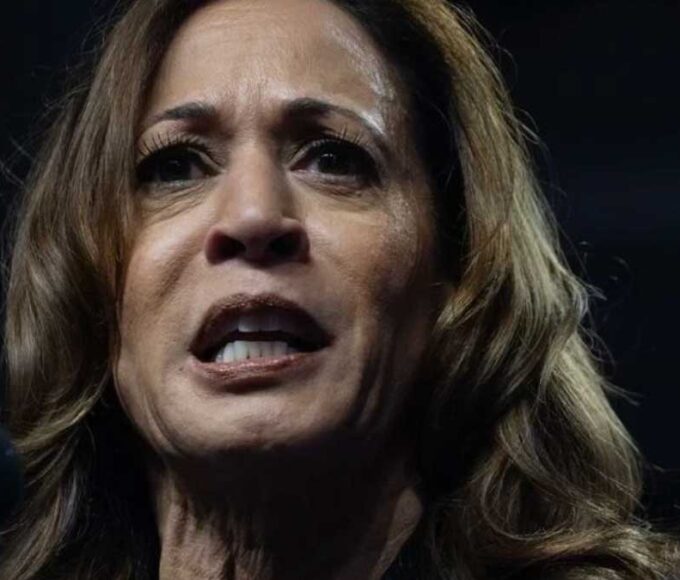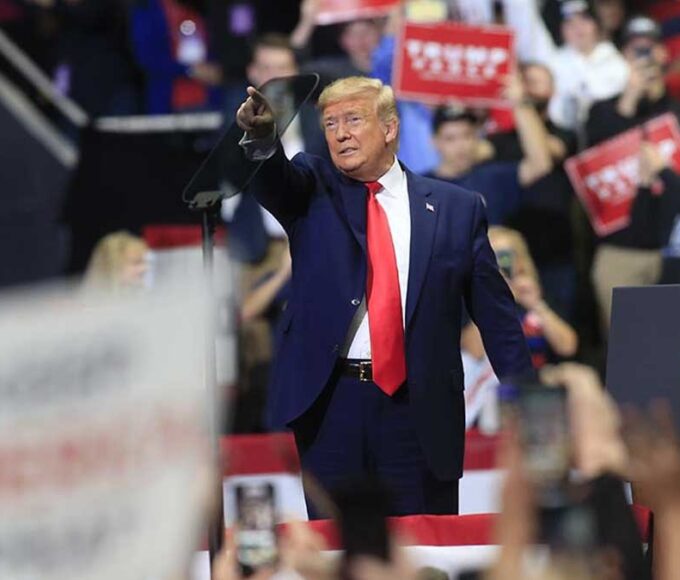- Home
- Billionaires
- Investing Newsletters
- 193CC 1000
- Article Layout 2
- Article Layout 3
- Article Layout 4
- Article Layout 5
- Article Layout 6
- Article Layout 7
- Article Layout 8
- Article Layout 9
- Article Layout 10
- Article Layout 11
- Article Layout 12
- Article Layout 13
- Article Layout 14
- Article Sidebar
- Post Format
- pages
- Archive Layouts
- Post Gallery
- Post Video Background
- Post Review
- Sponsored Post
- Leadership
- Business
- Money
- Small Business
- Innovation
- Shop
Recent Posts
Tim Walz Tops JD Vance in Favorability Ahead of Debate

As the political landscape heats up ahead of the upcoming vice presidential debate, Minnesota Governor Tim Walz is garnering more favorable opinions from registered voters than Ohio Senator JD Vance, according to a recent poll conducted by the Associated Press and the NORC Center for Public Affairs Research. Released on Tuesday, the survey reveals that a larger portion of the electorate views Walz positively compared to Vance, who is seen as less favorable among the voting public.
The poll, conducted from September 12-16 and involving 1,771 registered voters, found that 32% of respondents hold an unfavorable view of Walz, while a significant 57% view Vance unfavorably. These figures suggest a stark contrast in the candidates’ public perceptions as they prepare for their first—and likely only—vice presidential debate next Tuesday on CBS.
The data further highlights Walz’s broader appeal across party lines. The survey indicated that 11% of Republican voters express a favorable opinion of Walz, whereas only 4% of Democratic voters view Vance positively. This cross-party support could be crucial as the candidates vie for votes in an election season characterized by heightened political tensions and voter engagement.
In addition to the recent findings, historical polling data reinforces the notion that Walz has consistently outperformed Vance. A previous poll conducted by USA Today and Suffolk University earlier this month revealed that 48% of likely voters held a favorable opinion of Walz, while only 36% viewed him unfavorably. In stark contrast, Vance garnered favorable opinions from just 37% of respondents, with 49% viewing him unfavorably. This poll was conducted from August 25-28 and had a margin of error of ±3.1 points, further solidifying Walz’s stronger standing among voters.
Another poll from August 8-12 involving 986 registered voters showed similar trends, with 39% expressing a favorable view of Walz compared to only 29% for Vance. Meanwhile, 28% found Walz unfavorable, while a higher 48% held an unfavorable view of Vance.
Despite these polling numbers, both candidates remain relatively unknown to a substantial portion of the electorate. According to the September AP poll, 25% of registered voters admitted they do not know enough about Walz, while 21% stated the same about Vance. This suggests that as the campaign unfolds and more voters become familiar with their policies and public personas, these numbers could shift significantly.
The candidates’ debate next week will be pivotal as both seek to increase their visibility and solidify their positions among undecided voters. Experts suggest that vice presidential picks, while often thought to have limited impact on overall election outcomes, may prove influential in a tightly contested race. With the November election expected to be highly competitive, even minor shifts in voter perception could prove crucial.
According to the latest FiveThirtyEight averages, Vice President Kamala Harris has erased a previous lead that former President Donald Trump held over President Joe Biden, positioning her ahead by nearly three points. Both Walz and Vance have been portrayed by their respective campaigns as politicians capable of resonating with voters in key Midwestern swing states. While Vance is viewed as a loyal supporter of Trump, appealing to his MAGA base, Walz has garnered support from segments of the Democratic base that appreciate his advocacy for progressive issues.
Political analysts note that vice presidential candidates can offer insights into the broader decision-making of presidential candidates, potentially influencing how voters approach their choices in the election booth. Joel Goldstein, a professor emeritus at Saint Louis University and an expert on vice presidencies, emphasized that while presidential candidates are typically the main focus, the running mates can shed light on the values and priorities of the campaigns.
In terms of personal wealth, Vance and Walz present contrasting profiles. Vance is estimated to be worth around $10 million, largely attributed to his best-selling memoir, “Hillbilly Elegy,” and real estate investments totaling approximately $4 million. In contrast, Walz has an estimated net worth of just over $1 million, which is primarily derived from the pensions he and his wife receive from their careers in teaching and government. Notably, Walz does not own any property, stocks, or bonds, highlighting a stark difference in their financial backgrounds.
As the debate approaches, the dynamics of the race may evolve, particularly as Walz continues to gain visibility following his nomination as Harris’s running mate. The differing levels of public perception between the two candidates could play a significant role in shaping their respective strategies as they prepare to engage in what may be a defining moment for their campaigns.
With both candidates vying to appeal to a diverse electorate in an increasingly polarized political environment, the outcome of next week’s debate could set the tone for the remainder of the election cycle. As voters become more acquainted with the candidates’ positions and personalities, the momentum could shift in unexpected directions, influencing the overall landscape of the 2024 election.
Recent Posts
Categories
- 193cc Digital Assets2
- 5G1
- Aerospace & Defense46
- AI37
- Arts3
- Banking & Insurance11
- Big Data3
- Billionaires426
- Boats & Planes1
- Business328
- Careers13
- Cars & Bikes76
- CEO Network1
- CFO Network17
- CHRO Network1
- CIO Network1
- Cloud10
- CMO Network18
- Commercial Real Estate7
- Consultant1
- Consumer Tech180
- CxO1
- Cybersecurity68
- Dining1
- Diversity, Equity & Inclusion4
- Education7
- Energy8
- Enterprise Tech29
- Events11
- Fintech1
- Food & Drink2
- Franchises1
- Freelance1
- Future Of Work2
- Games141
- GIG1
- Healthcare78
- Hollywood & Entertainment186
- Houses1
- Innovation42
- Investing2
- Investing Newsletters4
- Leadership65
- Lifestyle11
- Manufacturing1
- Markets20
- Media193
- Mobile phone1
- Money13
- Personal Finance2
- Policy567
- Real Estate1
- Research6
- Retail1
- Retirement1
- Small Business1
- SportsMoney33
- Style & Beauty1
- Success Income1
- Taxes2
- Travel10
- Uncategorized8
- Vices1
- Watches & Jewelry2
- world's billionaires395
Related Articles
Harris vs. Trump: A Close Contest as Polls Indicate Narrow Leads
The upcoming election is shaping up to be a fierce battle between...
By 193cc Agency CouncilSeptember 26, 2024Musk Threatens Apple Device Ban Over OpenAI Integration
Elon Musk, known for his ventures such as Tesla, SpaceX, and OpenAI,...
By 193cc Agency CouncilJune 11, 2024Trump Hails NYPD’s Clearing of Columbia Encampment
Former President Donald Trump offered high praise for the New York Police...
By 193cc Agency CouncilMay 2, 2024Convert Social Media Followers into Loyal Fans
Many small business owners understand the power of social media in expanding...
By 193cc Agency CouncilApril 20, 2024















Leave a comment